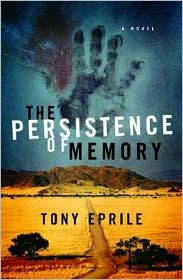“Who is Paul Sweetbread? A nice Jewish Christian boy, a liberal soldier in the army, a lousy good South African, a waare Zuid Afrikaaner Englishman? Can such a person even exist?”
Sout h Africa from 1968 – 2000 is revealed with all its cultural variety and internal stresses through the life story of Paul Sweetbread, an overweight Jewish boy who is an outsider to everyone. Neither a Boer nor an Englishman, he is also not really a Jew, either, since his family has never been observant, leaving him without any common roots that connect him to his Caucasian countrymen. A person with a photographic memory, he is, from the outset, a victim of his memory. Because he can quote from his schoolbooks exactly, teachers think he cheats; his fellow students torment him. From an early age he has been seeing a psychiatrist, though we do not know the specific circumstances which have made his therapy necessary.
h Africa from 1968 – 2000 is revealed with all its cultural variety and internal stresses through the life story of Paul Sweetbread, an overweight Jewish boy who is an outsider to everyone. Neither a Boer nor an Englishman, he is also not really a Jew, either, since his family has never been observant, leaving him without any common roots that connect him to his Caucasian countrymen. A person with a photographic memory, he is, from the outset, a victim of his memory. Because he can quote from his schoolbooks exactly, teachers think he cheats; his fellow students torment him. From an early age he has been seeing a psychiatrist, though we do not know the specific circumstances which have made his therapy necessary.

As he sets the scene and creates a fully drawn personality for Paul, author Tony Eprile recreates Paul’s early school and home life, his relationships with black servants, and his family history, including the death of his father. The action intensifies when Paul, having finished school in 1987, joins the South African Defense Force, instead of going to college. South Africa is nervously protecting its borders against various kinds of aggression, while also facing threats from within. Apartheid has been challenged, the British and Boers are at odds, and African nationalism is growing.
In bordering Namibia, formerly a German colony, revolutionaries are taking advantage of the confusion over who is in control–South Africa, the United Nations, or whoever can grab power for himself. Insurgent troops from Angola, trained by Cuba and China, have been warring in Angola and infiltrating Namibia. Fearing that a Communist border state will have serious consequences for its own tenuous political situation, South Africa has sent troops, including Paul, to Namibia to keep the imminent threat at bay.
Paul’s wartime experiences, recreated in stunning detail, further develop his character as he observes Captain Lyddie, “The perfect specimen of South African manhood,” engaging in racial brutality. Powerfully described, these incidents embed themselves in Paul’s perfect memory—and the reader’s. His “persistent memory” will not allow Paul to forget any of the racial incidents he has seen in the army, the torments that have been visited upon him, or the abuses of power both against him personally and against those considered enemies by the SADF. Eventually he is called upon to testify before the Truth and Reconciliation Commission, the 1990s commission that attempts to address specific racial grievances and put abusive army and police officers on trial before the turnover of the country to black rule.
 Thoughtful, challenging, moving, and filled with surprisingly wry humor, Eprile’s novel presents events from Paul Sweetbread’s life slowly, sometimes deliberately omitting important information in order to maintain suspense and let the reader come to know Paul through his life and actions, rather than through background information. Eprile creates a sympathetic picture of an extremely sensitive young man who finds himself in impossible situations which mark him for life. His philosophical musings about memory and metaphor near the end of the book raise important questions about society and national “memory,” how a country constructs its memories of the past in order to make it acceptable, and careful readers will savor the language and sheer intelligence of Eprile’s comments.
Thoughtful, challenging, moving, and filled with surprisingly wry humor, Eprile’s novel presents events from Paul Sweetbread’s life slowly, sometimes deliberately omitting important information in order to maintain suspense and let the reader come to know Paul through his life and actions, rather than through background information. Eprile creates a sympathetic picture of an extremely sensitive young man who finds himself in impossible situations which mark him for life. His philosophical musings about memory and metaphor near the end of the book raise important questions about society and national “memory,” how a country constructs its memories of the past in order to make it acceptable, and careful readers will savor the language and sheer intelligence of Eprile’s comments.
Photos, in order: The author’s photo appears on http://iwp.uiowa.edu
The map of Namibia is from http://www.lonelyplanet.com
The Sans Bushmen, used as army trackers in this novel, are now imperiled, threatened by the curses of unemployment, poverty, alcohol abuse and HIV-AIDS: http://www.abc.net.au

